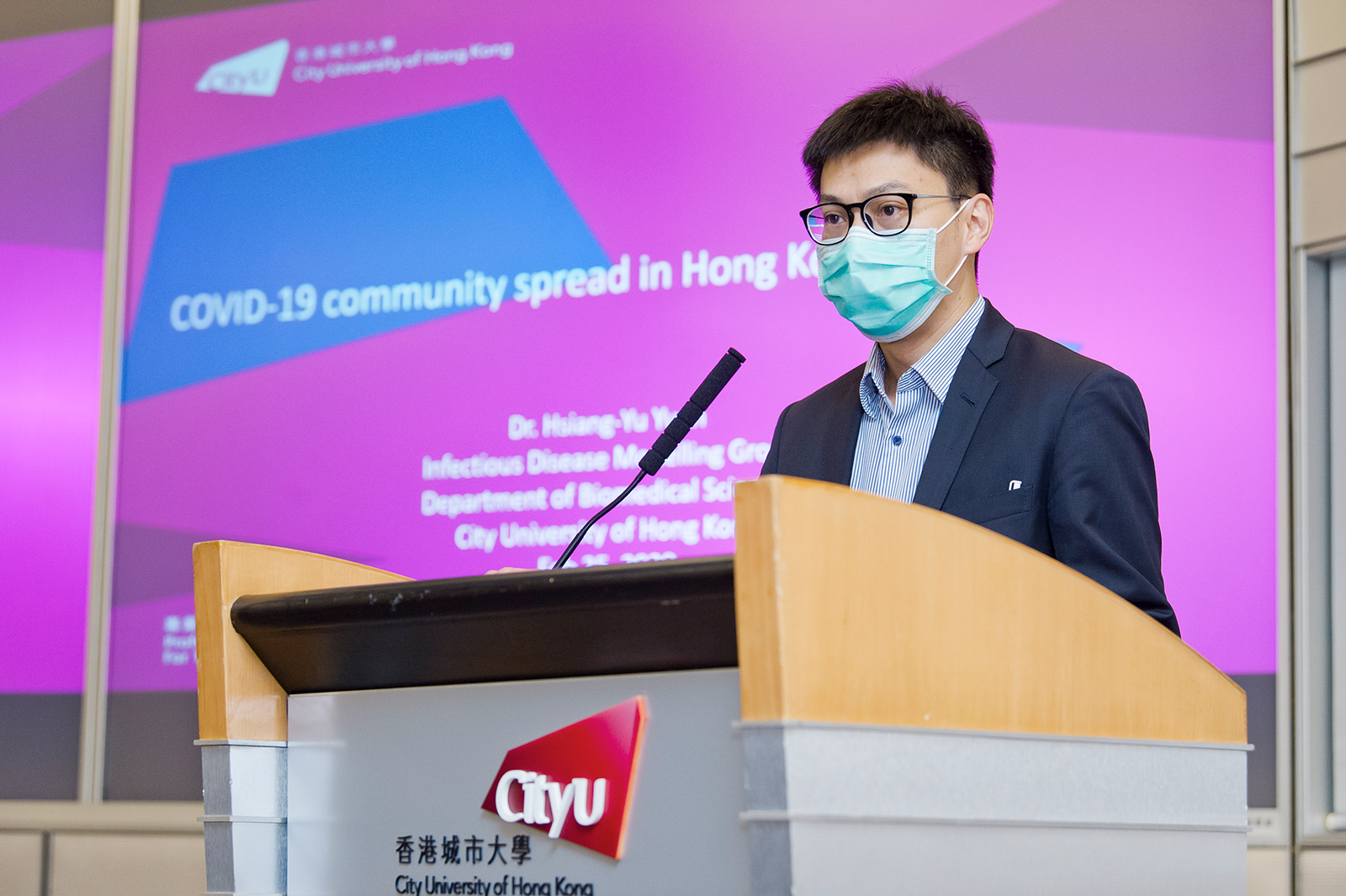CityU scholar estimates new Covid-19 cases in Hong Kong based on different quarantine conditions
As the spread of the novel coronavirus (Covid-19) epidemic continued, the effectiveness of existing quarantine measures is one of the major concerns. An expert in mathematical modelling for infectious diseases at City University of Hong Kong (CityU) estimated that there was a 3.5-day time gap between patients showing Covid-19 symptoms and being quarantined in Hong Kong. And in this case, there will be a possible increase of around 60 infected cases from mid-February to mid-March.
Dr Sean Yuan Hsiang-yu, Assistant Professor in the Department of Biomedical Sciences at CityU, applied a mathematical model to project the spread of Covid-19 epidemic in Hong Kong. The model is adapted from Imperial College London in the UK and he included different parameters in his projection. He took into consideration, for example, the incubation period of Covid-19, which is around five days on average, and the time gap between patients showing symptoms after contracting the virus and being quarantined.
According to the data from mainland China, it is estimated that one Covid-19 patient, if not quarantined, could infect 2.92 persons within 8.4 days. Using the mathematical model, he firstly estimated the possible numbers of imported cases and local infections that might take place between 18 January and 11 February in Hong Kong. By comparing the estimated numbers with actual figures, he deduced that patients were quarantined on average around 3.5 days after showing symptoms.
Then Dr Yuan ran the estimation based on different scenarios of quarantine conditions. In the projection, he also assumed there were some infected cases after disease onset but not yet diagnosed.
Dr Yuan estimated that Hong Kong would have around 60 new infected cases between mid-February and mid-March, if these patients were quarantined 3.5 days after showing symptoms and do not have any contact with others during the quarantine period. However, if these infected patients during the quarantine period still have recontact rate of 20%, meaning that they contact 20% of people they normally reach, the number of new cases will jump to around 350 between mid-February and mid-March. And if the recontact rate is up to 50%, the number of new cases can rise further to 1,235 in one month.
Considering there were imported cases in Hong Kong and each case could infect up to 2.92 persons, Dr Yuan worried that the risk of community outbreak in Hong Kong would be medium-high to very high depending on the time and the quality of the quarantine.
To prevent community outbreaks, he pointed out that early isolation of patients is the key. “High-risk individuals, including those who often contact unacquainted persons or who often go to different places, should see a doctor and self-isolate as soon as possible if they have symptoms of fever, fatigue, a hacking cough, and difficulty in breathing,” he said.
Dr Yuan stressed that whether the number of local infections will grow significantly depends on how effectively the quarantine measures can reduce the recontact rate between the high-risk individuals and other people. For example, even if high-risk individuals were home-quarantined, the risk of spreading virus could not be eliminated as they share bathroom and kitchen with family members.
He suggested the government to review the effectiveness of current quarantine measures and strictly limit the possibility of patients contacting others.
Using the same model, Dr Yuan estimated earlier in January that if Hong Kong residents who returned from mainland China after the Lunar New year were infected but undiagnosed for 5 days, it would bring around 60 infected cases in total in a few weeks, which was close to the current number of confirmed cases in Hong Kong.
Dr Yuan has worked on predictive models of infectious diseases in the Department of Infectious Disease Epidemiology at Imperial College London in 2013. Before joining CityU, he has engaged in dengue research at the National Health Research Institutes in Taiwan in 2017. He also engaged in human genomic medicine research at the Institute of Biomedical Sciences, Academia Sinica in Taiwan from 2003 to 2006, before pursuing a PhD in Biocomputing at Duke University, US.
CityU established the Jockey Club College of Veterinary Medicine and Life Sciences in 2018. Dr Yuan is one of the talents who joined CityU to research in the field of public health. Professor Way Kuo, President of CityU, approved the interview panel’s recommendation for Dr Yuan’s appointment.

Subscribe to newsletterSubscribe to newsletter
